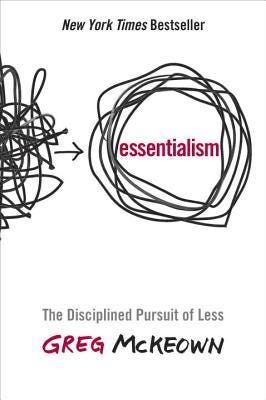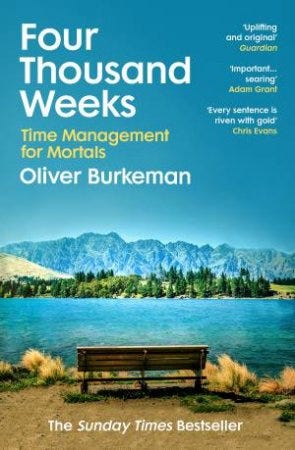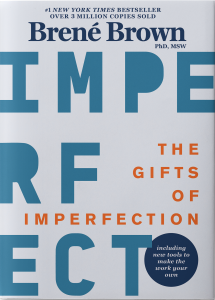Someone said to me the other day, “Bonnie, you seem so busy even during your career break. Studying, freelancing, and writing on different blogs. Just like when you were working full-time.”
I replied with a smile, “I may be doing many things, but I don’t feel busy at all. I get to choose what to do and do them at my own pace, instead of grinding the day to meet some arbitrary requirements. I’d describe my days as purposedly fulfilled.”

Busyness is often seen as a status symbol in the modern world. Stress and exhaustion are accepted as the norm of everyday life. It is commonly believed that we are efficient and effective only when we tick everything off the to-do list, that we are worthy and successful only when we hustle and kick goals every minute, and that we live a “great” life only when our schedule is jammed with stuffs to do.
No wonder so many people are not only burned out and falling ill, but also feeling miserable, restless, or angry.
Our attachment with busyness is a systemic issue and not a fault of the individual.
Human beings are herd animals. For survival, we seek belonging and acceptance at home, at work, and in society. We fear being excluded or ostracised. Our desire for love and connection pushes us toward conformity and subscribing to the collective narrative rooted in capitalism. But growing incomes and prosperity do not always translate to happiness and satisfaction in life. There are many societal and cultural factors that shape (or distort) our perception of a good life, such as materialism, consumerism, social media, wealth disparity, just to name a few.
Sometimes it feels almost impossible to stay grounded and focused amid all the busyness, chaos, and noises. The capitalist world is constantly luring us into consumption – from material goods to fad diets, clickbait to reels – getting us high on dopamine and creating an illusion of belonging. Paradoxically in the process we disconnect with ourselves and one another. Just like modern economies, we become stuck in the never-ending cycle of boom and bust and surrender our power to choose to walk a different path.
What can we do to set ourselves free from the busyness curse? How can we cultivate agency, courage and resilience to chart our own course? Where is the gateway to freedom, calm and stillness?
As always, I seek answers from books. Here are the three books (plus some impactful quotes) that have reshaped my view on the meaning of life, living, and success over the past seven years:
Essentialism: The Disciplined Pursuit of Less by Greg McKeown
I read Essentialism when my health hit rock bottom in late 2015. Unlike many typical “self-help” books that encourage us to be everything and do it all, it offers the alternative pathway: doing less and better. This book empowers me to get out of “learned helplessness”, exercise the power of choice, turn trade-offs into opportunities, and most importantly, honour my values and intuition.
“Essentialism is not about how to get more things done; it’s about how to get the right things done. It doesn’t mean just doing less for the sake of less either. It is about making the wisest possible investment of your time and energy in order to operate at our highest point of contribution by doing only what is essential.”
“What if we stopped celebrating being busy as a measurement of importance? What if instead we celebrated how much time we had spent listening, pondering, meditating, and enjoying time with the most important people in our lives?”
“We often think of choice as a thing. But a choice is not a thing. Our options may be things, but a choice—a choice is an action. It is not just something we have but something we do.”
“Don’t ask, ‘How will I feel if I miss out on this opportunity?’ but rather, ‘If I did not have this opportunity, how much would I be willing to sacrifice in order to obtain it?’”
“Sometimes what you don’t do is just as important as what you do.”
Four Thousand Weeks: Time Management for Mortals by Oliver Burkeman
I read Four Thousand Weeks soon after I left my full-time job in July 2022. This book is a much-needed wake-up call, prompting me to redefine my version of success and contemplate how best I can be of service for whatever’s left out of my 4000 weeks. It gives me the courage to make bold choices in life as I navigate my journey post-Great Resignation.
“Productivity is a trap. Becoming more efficient just makes you more rushed, and trying to clear the decks simply makes them fill up again faster. Nobody in the history of humanity has ever achieved work-life balance.”
“One way of understanding capitalism, in fact, is as a giant machine for instrumentalising everything it encounters – the earth’s resources, your time and abilities (or ‘human resources’) – in the service of future profit.”
“You can’t know that things will turn out all right. The struggle for certainty is an intrinsically hopeless one—which means you have permission to stop engaging in it.”
“You need to learn how to start saying no to things you do want to do, with the recognition that you have only one life.”
“It is by consciously confronting the certainty of death, and what follows from the certainty of death, that we finally become truly present for our lives.”
The Gifts of Imperfection by Brené Brown
I read The Gifts of Imperfection after I watched “Brené Brown: The Call to Courage” on Netflix in the thick of the pandemic. This book holds the beacon, guides me through the darkness of fear, shame, guilt, self-doubt, and leads me to what Brown called the lifelong journey of “wholehearted living”. It reminds me to pick up what I used to enjoy doing as a child – reading, writing, doodling – and do them often. Creativity is not a luxury, but a necessity and a priority in everyone’s life.
“Don’t ask what the world needs. Ask what makes you come alive, and go do it. Because what the world needs is people who have come alive.”
“Authenticity is the daily practice of letting go of who we think we’re supposed to be and embracing who we are. Choosing authenticity means cultivating the courage to be imperfect, to set boundaries, and to allow ourselves to be vulnerable; exercising the compassion that comes from knowing that we are all made of strength and struggle; and nurturing the connection and sense of belonging that can only happen when we believe that we are enough.”
“The only unique contribution that we will ever make in this world will be born of our creativity. If we want to make meaning, we need to make art. Cook, write, draw, doodle, paint, scrapbook, take pictures, collage, knit, rebuild an engine, sculpt, dance, decorate, act, sing – it doesn’t matter. As long as we’re creating, we’re cultivating meaning.”
“We use our spare time to desperately search for joy and meaning in our lives. We think accomplishments and acquisitions will bring joy and meaning, but that pursuit could be the very thing that’s keeping us so tired and afraid to slow down.
If we want to live a wholehearted life, we have to become intentional about cultivating sleep and play, and about letting go of exhaustion as a status symbol and productivity as self-worth.”“Stillness is not about focusing on nothingness; it’s about creating a clearing. It’s opening up an emotionally clutter-free space and allowing ourselves to feel and think and dream and question.”






Excellent reminder about protecting what's important!
Bonnie, this is excellent and The Gifts of Imperfection is one of my favorites. I love this article and the way you are happy busy in the best of ways - from deep inside outward. Love, Melody